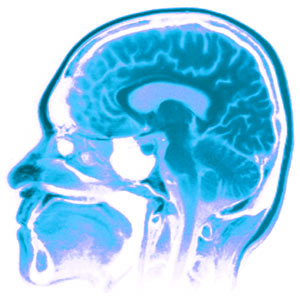A new Canadian study, the findings of which were presented at an international conference on Alzheimer's in Chicago, and published in the journal Nature Communications, conducted an experiment with an innovative technology called focused ultrasound (technology from the Israeli company InSightec), which enabled the safe penetration and reversal of the blood-brain barrier with the help of ultrasound guided by MRI

Our brain is protected from penetration of most of the proteins in our body by the so-called blood-brain barrier. The barrier is also created with the help of a structural element, the cells in the blood vessel walls are tight and prevent the passage of large molecules, and also with the help of a chemical element. The reason for the barrier is to protect the brain from substances that can harm it and allow only important substances such as glucose to pass through it. The problem is what can be done when you want to inject a certain drug into the brain, let's say a drug to treat Alzheimer's, Parkinson's, ALS or brain tumors and metastases.
A new Canadian study, the findings of which were presented at an international conference on Alzheimer's in Chicago, and published in the journal Nature Communications, conducted an experiment with an innovative technology called focused ultrasound (technology from the Israeli company InSightec), which enabled the safe penetration and reversal of the blood-brain barrier with the help of ultrasound guided by MRI. During the experiment, the researchers were able to create holes in this barrier that close quickly and thus allow substances to pass through, but immediately afterwards return to protecting the brain from harmful substances.
During the experiment, in which six people over the age of 65 with Alzheimer's disease in a mild to moderate stage participated, the researchers injected microscopic bubbles into the blood of Alzheimer's patients, demonstrated in real time the subjects' brains with the help of an MRI, and through a helmet-like device sent ultrasound waves to a certain area of the brain. The ultrasound waves vibrated the tiny bubbles in the blood of the subjects and these caused a temporary relaxation of the blood-brain barrier junctions (it was possible to detect the penetration of the bubbles into the brain with the help of MRI scans after contrast material). An MRI the next day revealed that the blood-brain barrier had closed again. No bleeding or side effects were observed during the experiment.
The importance of this method is very great, since in this way it will be possible to treat the brain even while using drugs in low concentrations, and succeed in introducing them to the brain to treat diseases. As mentioned, the Israeli company InSightec is the company that manufactures the ultrasound device in which the experiment was done. Follow-up studies will soon be conducted in the United States using this method.
Link to an article on the Nature website about the new technology
You are invited to read more about MRI and the expected future in this field in my book MRI the complete guide-medicine and physics meet
More of the topic in Hayadan:

One response
Terrible and terrible, now they will inject their poisons under the guise of 'medicines' directly into the brain and disrupt the person even more..